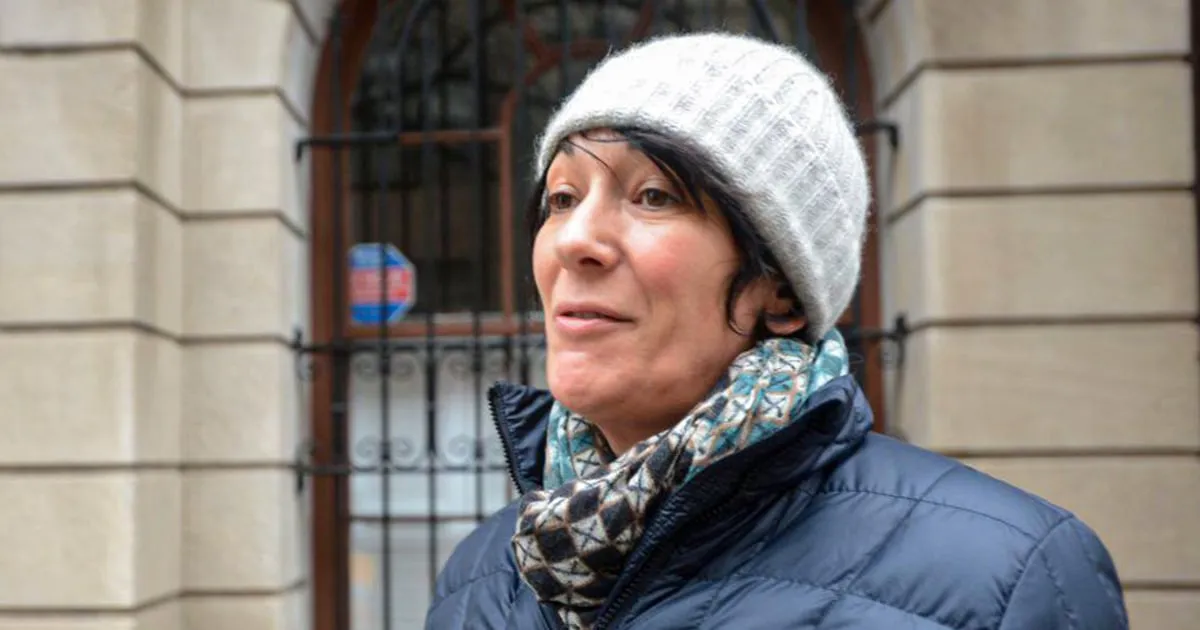
On Friday, Deputy Attorney General Todd Blanche concluded a series of meetings with Ghislaine Maxwell, totaling nine hours over two days. However, the Justice Department has remained tight-lipped about the contents of these discussions or the subsequent steps in the much-criticized Jeffrey Epstein investigation. This approach has raised eyebrows among former prosecutors who deem it highly unusual for the department's No. 2 official to personally engage with a witness in such a high-profile case.
Secrecy is a common practice in criminal investigations, yet the typical protocol would involve the prosecutors on the case being present during questioning. A former senior Justice Department official remarked, “I’ve never heard of a deputy attorney general doing anything like this before.” This level of confidentiality has led to questions about transparency, especially from the victims of Epstein and Maxwell, who were convicted in 2021 for recruiting and grooming teenage girls for sexual exploitation.
Jack Scarola, a lawyer representing around 20 Epstein victims, expressed his frustration over being excluded from the Maxwell interviews, emphasizing the need for transparency in a case that has drawn significant public scrutiny. Similarly, Berit Berger, a former federal prosecutor in New York, suggested that Blanche's interviews might serve more as a formality than as substantive investigative efforts. She stated, “It may be just a way of being able to say, ‘Look, we dotted every I and crossed every T.’”
The recent actions of Attorney General Pam Bondi, Todd Blanche, and even President Donald Trump have been scrutinized as they attempt to mitigate the backlash following the announcement on July 6 that a thorough review of the Epstein case revealed no evidence warranting further investigation into other individuals. FBI officials, including Director Kash Patel and Deputy Director Dan Bongino, have supported these findings, which has further fueled public skepticism.
Catherine Christian, a former Manhattan assistant district attorney and legal analyst for NBC News, indicated that the interviews with Maxwell could also be a strategic move aimed at protecting Trump, especially given his connections to Epstein. “It’s hard to believe this is anything but performative,” Christian noted, suggesting that the interviews were likely an attempt to exonerate Trump from any association with Epstein's criminal activities.
Maxwell's attorney, David Oscar Markus, who is known for his ties to Blanche, praised the deputy attorney general for his thorough questioning of Maxwell. "She was asked maybe about 100 different people," Markus reported, though he refrained from disclosing specific individuals discussed. He affirmed that Maxwell answered all questions candidly, stating, “They asked about every single, every possible thing you could imagine, everything.”
A senior administration official, who requested anonymity, disclosed that Maxwell was granted limited immunity by the Justice Department to facilitate her cooperation in the investigation. This form of immunity allows defendants to provide information without the risk of self-incrimination, as long as they are truthful. However, this arrangement is deemed "limited" since any dishonesty would nullify the immunity agreement.
Despite the discussions surrounding her immunity, Maxwell's situation remains complex. She has already been convicted and sentenced to 20 years in federal prison, making any plea deal or sentence reduction unlikely. Markus has indicated that an appeal of her conviction is pending before the Supreme Court, arguing that the trial was unfair.
President Trump, when questioned about the possibility of pardoning or commuting Maxwell's sentence, stated, “It’s something I haven’t thought about,” while redirecting focus onto other high-profile individuals associated with Epstein, including former President Bill Clinton. “You should focus on Clinton,” he asserted, emphasizing the need to scrutinize those who were closer to Epstein than he was.
Mimi Rocah, a former New York federal prosecutor, raised concerns over the recent firing of Maurene Comey, a lead prosecutor in the Maxwell case. Rocah suggested that this move aimed to ensure Trump appointees had full control over the investigation, effectively limiting transparency and dissenting voices. “That does not seem coincidental,” she remarked, critiquing Blanche’s meetings with Maxwell as potentially unjust to Epstein’s victims.
Rocah concluded by highlighting the risks involved in allowing the head of the Department of Justice to engage with Maxwell without the oversight of knowledgeable prosecutors. “The head of that entire institution that is supposed to be about protecting victims is talking to her, giving her a platform to say God knows what, without much way to verify it or not,” she noted, underscoring the need for more accountability in the ongoing investigation.